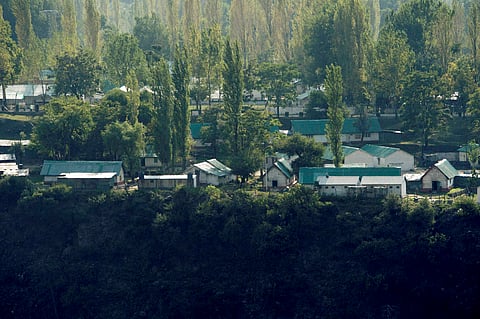

Fourteen of the 17 soldiers who died in the terrorist attack at the Army base in Uri on Sunday were burnt alive while they slept in their tents, raising concerns over why the jawans posted to one of the most attack-prone spots in the volatile state were made to camp in tents at all.
By the time the 6 Bihar and the 10 Dogra regiments retaliated to the strike, the biggest blow had already been dealt, indicating that the death toll could have been significantly lowered had basic facilities such as fire-retardant tents, if not sturdy accommodation, been the norm.
Given that the forces have borne the brunt of several such attacks with increasing frequency in the past - there have been at least 90 infiltration attempts this year up to June 30 alone - it is alarming that the defence establishment made sitting ducks of the jawans by lodging them in tents soaked in inflammable chemicals - a measure taken to waterproof the fabric.
Former Jammu & Kashmir chief minister Omar Abdullah set off a heated discussion on social networking site Twitter, pointing out that incendiary tents had handicapped the regiments' ability for a quick and efficient rebuttal to the raining gunshots and grenades.
"While we work out who is to blame for #Uri & what an appropriate response will be do we not owe our troops flame retardant tents & huts?" the tweet reads.
The National Conference leader also lamented that while the Army "mordernised" its auditoriums and its quarters, it took the jawans for "granted".
Tents along 150 meters went up in smoke instantaneously as terrorists opened fire when the jawans from the two regiments were preparing to change shifts. Tent fabrics are treated with chemicals, often kerosene, to make them waterproof. The water repellant acts as an accelerant. Tent manufacturers say no tent fabric is totally fireproof.
Today most tent makers claim their fabrics are fire retardant but all tents will burn and most will burn remarkably quickly.
Tent fires have been reported in US military camps in Kuwait and in British bases in Afghanistan.